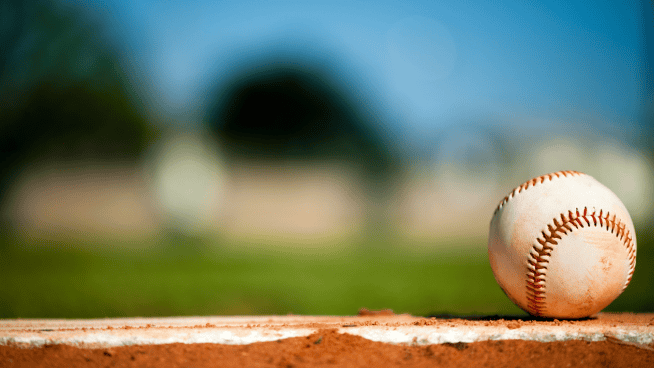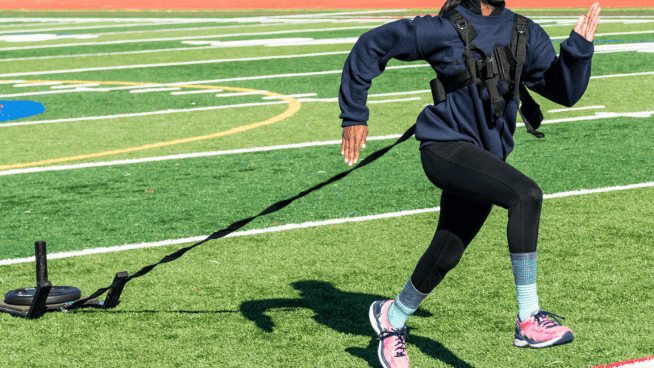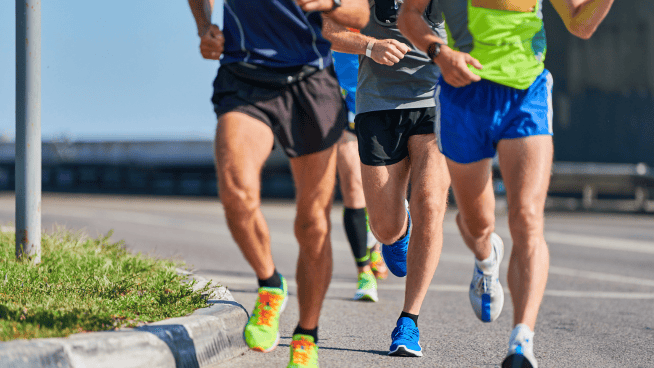Detriments of Alcohol
Even one alcoholic drink can put your performance on the brink. Leslie Bonci, sports nutrition director at the University of Pittsburgh Medical Center and nutrition consultant to the Pittsburgh Steelers, explains why.
STACK: What is alcohol, and how does it affect the body?
Leslie Bonci: Alcohol is composed of carbohydrates. When it breaks down, it is filtered [into] the liver. Not only is that stressful to the liver, but alcohol can affect the brain— from our ability to be less inhibited… our sense of judgment, to our motor skills, to our health benefits. Even one drink can have that effect on the body. And because it’s liquid [and] leaves the digestive system very, very quickly, it can make its effects known in a relatively short period of time.
STACK: Does alcohol affect strength and reaction time?
LB: One of the things about alcohol is [it] delays the body’s reaction time. So imagine this: if you’re lifting weights, and you aren’t really paying attention to what you’re doing, you can get seriously hurt. It also impairs judgment, [so you think] “Oh I can lift more than I think I can,” and then all of a sudden you have a torn rotator cuff.
STACK: Explain how alcohol impacts glycogen synthesis.
LB: When we exercise, our body is using stored carbohydrate to fuel us through our exercise, both in the muscle [and] from the liver. If somebody consumes alcohol, alcohol is basically the obstacle or the hurdle, so it takes that much longer for the liver to synthesize the glycogen, so it delays recovery. That means for that subsequent exercise bout, [you will] feel a lot more fatigued.
STACK: How does alcohol excrete vitamins from the body?
LB: Because it is a diuretic, it is dehydrating to the body. You don’t just lose fluid, but you lose other things along with what is in the composition of the fluid. Some of that is B vitamins, [which]… are important because they help our body better glean the nutrients from the foods that we eat. B vitamins also indirectly contribute to energy levels for the body [and] certainly contribute to cognitive functioning. Minerals, as well, can be leaked—calcium being one of them. If somebody has less calcium in their bones …, [he] increase[s] the risk of stress fractures, which is certainly not … in the best interest of an athlete.
STACK: How can alcohol affect growth?
LB: The body is not finished growing at the age of 14 or 15; neither are the brain [and] the organs. When we introduce potentially dangerous substances into the body, we’re going to feel that effect two or three fold, [compared] to a body that has already finished growing. Because that body is not finished growing, [reactions to alcohol are more intense]—more intense dehydration, more intense delay of recovery, more intense effect on the liver.
RECOMMENDED FOR YOU
MOST POPULAR
Detriments of Alcohol
Even one alcoholic drink can put your performance on the brink. Leslie Bonci, sports nutrition director at the University of Pittsburgh Medical Center and nutrition consultant to the Pittsburgh Steelers, explains why.
STACK: What is alcohol, and how does it affect the body?
Leslie Bonci: Alcohol is composed of carbohydrates. When it breaks down, it is filtered [into] the liver. Not only is that stressful to the liver, but alcohol can affect the brain— from our ability to be less inhibited… our sense of judgment, to our motor skills, to our health benefits. Even one drink can have that effect on the body. And because it’s liquid [and] leaves the digestive system very, very quickly, it can make its effects known in a relatively short period of time.
STACK: Does alcohol affect strength and reaction time?
LB: One of the things about alcohol is [it] delays the body’s reaction time. So imagine this: if you’re lifting weights, and you aren’t really paying attention to what you’re doing, you can get seriously hurt. It also impairs judgment, [so you think] “Oh I can lift more than I think I can,” and then all of a sudden you have a torn rotator cuff.
STACK: Explain how alcohol impacts glycogen synthesis.
LB: When we exercise, our body is using stored carbohydrate to fuel us through our exercise, both in the muscle [and] from the liver. If somebody consumes alcohol, alcohol is basically the obstacle or the hurdle, so it takes that much longer for the liver to synthesize the glycogen, so it delays recovery. That means for that subsequent exercise bout, [you will] feel a lot more fatigued.
STACK: How does alcohol excrete vitamins from the body?
LB: Because it is a diuretic, it is dehydrating to the body. You don’t just lose fluid, but you lose other things along with what is in the composition of the fluid. Some of that is B vitamins, [which]… are important because they help our body better glean the nutrients from the foods that we eat. B vitamins also indirectly contribute to energy levels for the body [and] certainly contribute to cognitive functioning. Minerals, as well, can be leaked—calcium being one of them. If somebody has less calcium in their bones …, [he] increase[s] the risk of stress fractures, which is certainly not … in the best interest of an athlete.
STACK: How can alcohol affect growth?
LB: The body is not finished growing at the age of 14 or 15; neither are the brain [and] the organs. When we introduce potentially dangerous substances into the body, we’re going to feel that effect two or three fold, [compared] to a body that has already finished growing. Because that body is not finished growing, [reactions to alcohol are more intense]—more intense dehydration, more intense delay of recovery, more intense effect on the liver.










